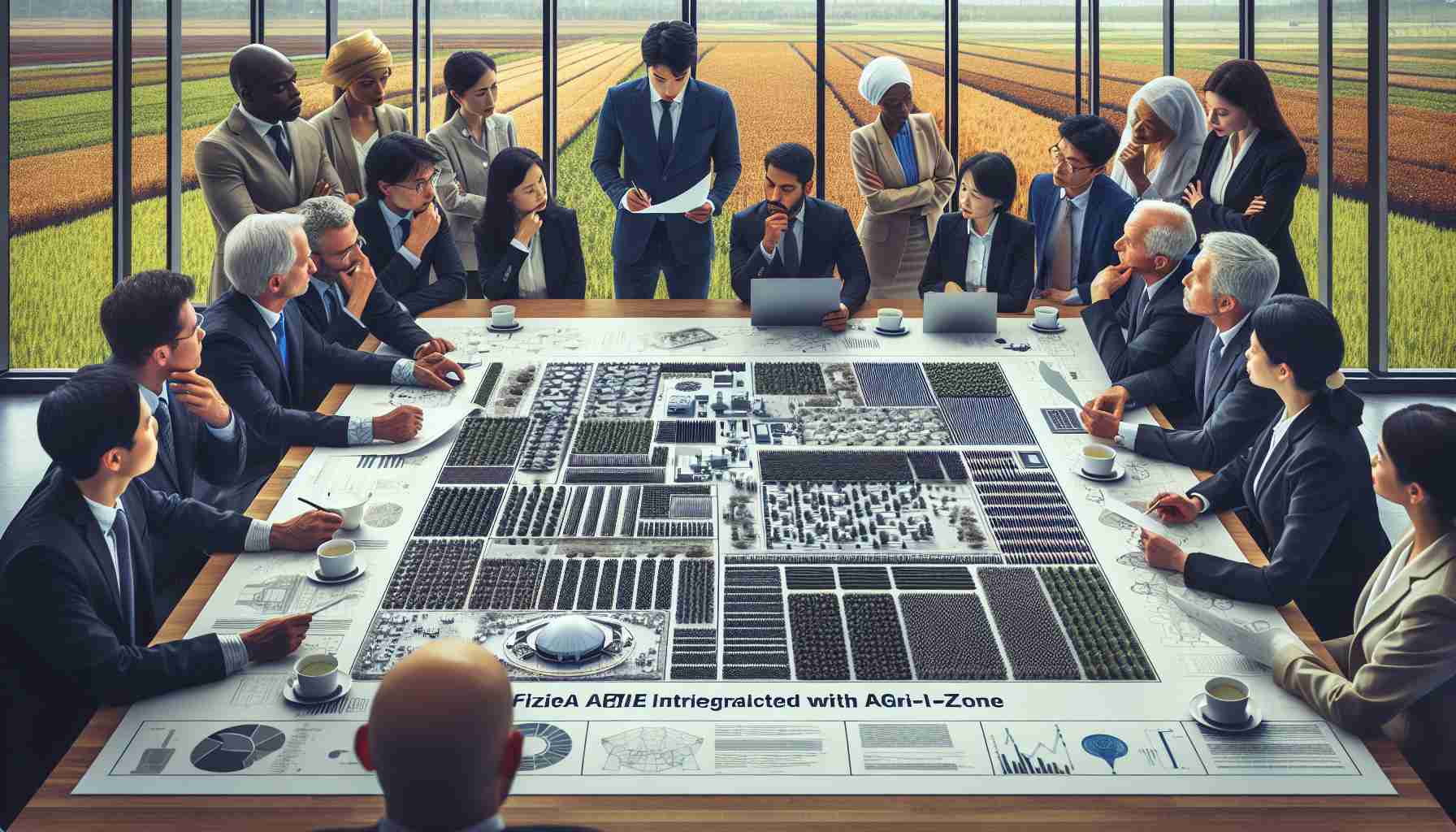Advancing Smart Farming through AI Integration
In a recent seminar held in Gwangju, Jeollanam-do, thought leaders from various sectors, including agricultural machinery, data, and robotics, convened to discuss the future of smart agriculture. The seminar aimed at crafting strategies for the development of an advanced agriculture complex, integrating Artificial Intelligence (AI) to boost the province’s farming industry.
Constructing the Smart Agri-Future
The envisioning of an AI-based agricultural hub in Jeollanam-do involves building state-of-the-art facilities such as a high-tech agricultural promotion center, big data center for agriculture, demonstration complexes, and various industrial divisions throughout the province. This initiative has gained traction with the earmarking of a 300 million won budget for feasibility studies, which are already underway.
Seminar Insights for Smart Agriculture Development
During the event, presentations by esteemed specialists outlined crucial paths forward. Discussions highlighted the necessity of fostering a symbiotic relationship between agricultural part and component companies and the cultivation of an innovation ecosystem. The need for concentrated research facilities and support for technological advancements in the high-tech agriculture sector was also underscored.
Strategies for nurturing Korea’s homegrown smart agricultural technologies and industry support, as well as structuring academia-industry research linkages, were introduced. Proposals on how to achieve self-sufficiency and a robust export foundation for agricultural machinery parts were shared, alongside suggested certification systems and standardization strategies.
The seminar also shed light on the present and future of agricultural machinery, with proposed collaboration methods between enterprises and cooperatives, and the conceptualization of an innovation ecosystem with startups and unicorn companies. It called for urgent application of ICT, automation, and AI, emphasizing the integration of structured and unstructured agricultural data for a groundbreaking agro-industrial district.
Jeollanam-do officials expressed their confidence that the AI-integrated agricultural complex will not only revolutionize Korean agriculture but also play a pivotal role in establishing a global leadership position. Strategies derived from the seminar’s outcomes are set to guide the transformation towards a world-leading, AI-based modern agricultural nexus in Jeollanam-do.
Key Questions and Answers:
1. What is the goal of the AI-integrated Agri-Zone in Jeollanam-do?
The goal is to revolutionize Korean agriculture by constructing an advanced agricultural complex that integrates AI, thus boosting the province’s farming industry and establishing a global leadership position.
2. How much budget has been allocated for feasibility studies?
A budget of 300 million won has been earmarked for feasibility studies.
3. What are the main components of the envisioned AI-based agricultural hub?
The hub will include facilities like a high-tech agricultural promotion center, big data center, demonstration complexes, and various industrial divisions.
4. Why is the symbiotic relationship between agricultural parts companies and cultivation innovation important?
This relationship is essential for fostering a supportive innovation ecosystem that can nurture domestic smart agricultural technologies and ensure self-sufficiency.
Key Challenges and Controversies:
– Data Integration: The complexity of integrating structured and unstructured agricultural data poses a significant technical challenge.
– Technological Adaptation: Farmers and agricultural workers may require training and support to adapt to new technologies and AI systems.
– Industrial Collaboration: Ensuring effective cooperation between enterprises, cooperatives, startups, and unicorn companies could be challenging.
– Financial Resources: Long-term financing for the project’s development and maintenance could be a potential challenge.
Advantages and Disadvantages:
Advantages:
– Innovation: The integration of AI and related technologies can lead to increased efficiency and productivity in agriculture.
– Global Leadership: The project could establish Korea and Jeollanam-do as leaders in smart farming on the global stage.
– Economic Growth: It could stimulate economic growth by creating new jobs and opportunities within the high-tech agriculture sector.
Disadvantages:
– Initial Costs: High initial investment for developing and implementing AI and smart technologies.
– Displacement: Automation might lead to the displacement of traditional farming jobs, creating a need for retraining and support.
– Technical Issues: Potential technical challenges in developing and maintaining advanced AI systems for agriculture.
To explore more about Jeollanam-do, you may visit the official website of Jeollanam-do province through this link: Jeollanam-do Official Website.
Please note that the URLs provided must be assessed for their validity and relevance to the current topic on an ongoing basis, as web content can change.

